The major difference between smooth service and costly delays often comes down to one critical factor: how the kitchen stores its ingredients, tools, and equipment.
What is the Ideal Kitchen Storage Solution for Hotels?
Imagine a thriving hotel kitchen during peak breakfast service: chefs juggling island stations, servers darting in for fresh coffee carafes, and a line cook frantically searching for the backup bin of pancake mix. In this chaos, every second counts—and the difference between smooth service and costly delays often comes down to one critical factor: how the kitchen stores its ingredients, tools, and equipment.
For hotels, where reputation largely hinges on consistent quality and timely service, a poorly designed storage system is not merely inconvenient; it is a liability. Let's analyze what truly makes a commercial kitchen storage solution effective, why it is non-negotiable for modern hotels, and how to establish a smooth and comprehensive storage system.
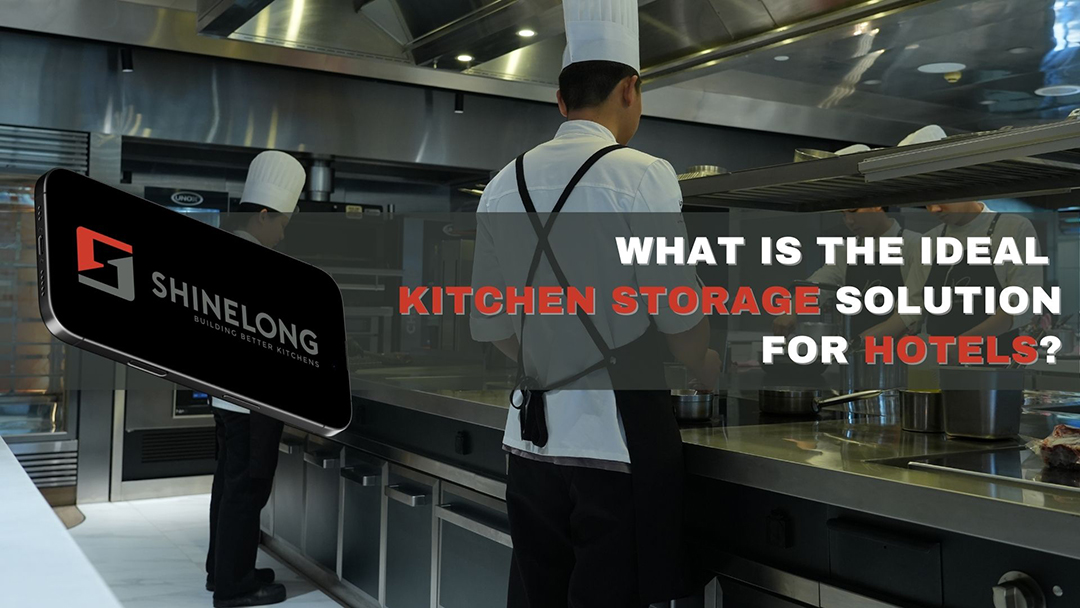
The Hidden Costs of Poor Kitchen Storage
Before discussing kitchen storage solutions, it's worth understanding why storage is an essential element in hotel kitchens. Unlike residential spaces, hotel kitchens operate at a commercial scale. They are tasked with:
• Storing enough ingredients to serve hundreds (or thousands) of guests daily.
• Preventing cross-contamination between raw and cooked foods.
• Complying with strict health department regulations.
• Minimizing waste in an industry where profit margins are narrow.
Consider this: A study by the American Hotel & Lodging Association found that hotels waste 12-15% of their food inventory annually due to improper storage, resulting in thousands of dollars lost per property. Furthermore, disorganized kitchens increase the risk of health code violations, which can lead to fines or even temporary closures.
How to Build the Ideal Hotel Kitchen Storage System
The best hotel kitchens function like precision instruments, and their storage systems are no exception. Here's what a well-designed setup looks like in practice:
1. Start with the Workhorse: Stainless Steel
Stainless steel isn't just a buzzword—it's the backbone of any hygienic kitchen. Unlike wood or plastic, it resists bacterial growth, withstands daily sanitization, and lasts for decades.
Key Applications:
• Adjustable shelving units: These allow the hotel kitchen to customize vertical space for everything from giant sacks of flour to delicate pastry trays. Tip: Leave a 6-inch gap between shelves and walls for proper air circulation.
• Mobile prep tables with under-counter storage: These are practical for banquet kitchens, allowing staff to prepare salads on one side while storing serving platters underneath.
• Lockable cabinets for high-risk items: Reserve these for allergens like nuts or premium ingredients like truffle oil.
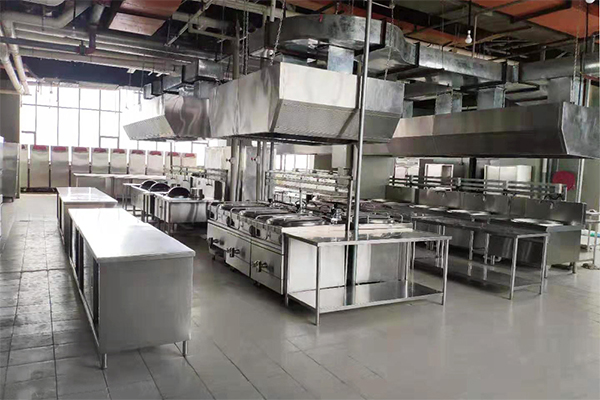
2. Master Temperature Control
Hotels need to store everything from fresh herbs to frozen puff pastry—often in the same kitchen. This requires a tiered approach:
• Walk-in coolers: Opt for models with separate zones for dairy (34°F), produce (38°F), and raw meat (32°F). Glass-front doors help staff quickly locate items without wasting cold air.
• Blast chillers: Critical for large hotels that prep meals in advance. These rapidly cool hot foods to safe temperatures, extending shelf life by up to 72 hours.
• Dry storage rooms: Maintain these at 50-70°F with <15% humidity. Use airtight storage bins labeled with expiry dates—color-coding by day of the week simplifies FIFO (First In, First Out) rotation.
• Containerized Cold Rooms: Modular cold rooms, often built with stainless steel panels and insulated cores, offer scalable solutions for hotels with fluctuating storage needs. These units can be customized with separate zones, such as dedicated meat lockers (maintained at 28–32°F) to prevent bacterial growth or produce chambers (36–40°F) with humidity controls to extend the freshness of leafy greens by up to 50%.
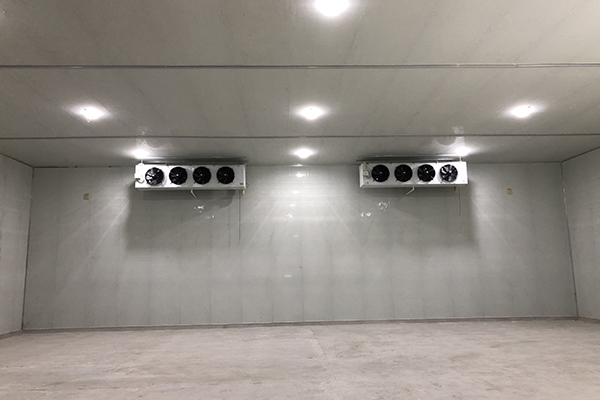
3. Design for Human Behavior
Even the fanciest storage system fails if staff don't use it properly. Smart hotels design around their team's workflow:
• Place high-use items at eye level: Your line cooks shouldn't bend or stretch for olive oil or salt.
• Install magnetic knife strips near prep stations: Saves counter space and reduces accidents from cluttered drawers.
• Use translucent bins for backups: Staff can see when the pancake mix is running low without opening every container.
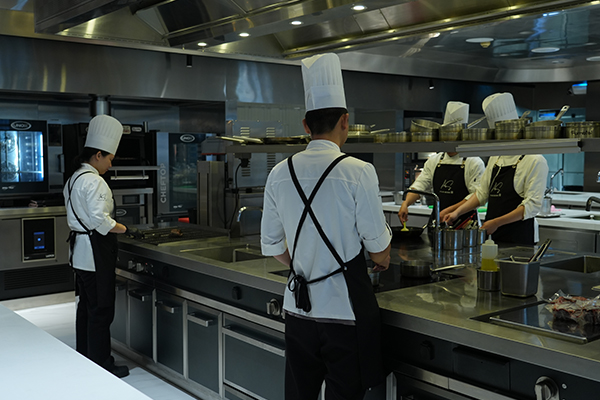
4. AI-Driven Inventory Management
Artificial intelligence is quietly revolutionizing how hotels manage stock—minimizing waste and streamlining orders.
• Automated Shelf-Life Tracking: Smart labels with QR codes now sync with inventory software, automatically updating expiry dates. Staff scans items during prep, and the system prioritizes usage—critical for compliance with HACCP standards.

What Can A Positive Kitchen Storage Solution Bring to A Hotel?
Consider the example of Hotel Miramar in Barcelona. After redesigning their kitchen storage with expert guidance, they achieved measurable results within months:
• A 22% reduction in food waste, saving €18,000 annually.
• 15% faster service times during peak hours.
• Zero health code violations for two consecutive years.
These results are not isolated. Hotels that prioritize storage efficiency typically report:
• 30% fewer inventory errors.
• Extended equipment lifespan due to proper storage.
• An effective storage solution ensures that the hotel's food remains fresh.
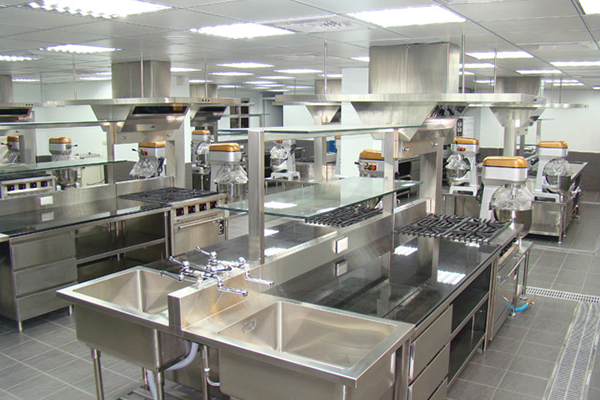
Finding the Right Partner for Your Kitchen
A hotel's kitchen storage system isn't just about shelves and bins—it's about establishing an ecosystem where food stays fresh, staff work efficiently, and costs are controlled. Whether you're building a new property or optimizing an existing kitchen, start by auditing your current pain points.
While some hotels try to piece together storage solutions from generic suppliers, industry leaders work with specialists who understand the unique demands of hospitality. For example, Shinelong Commercial Kitchens, a global supplier with over 20 years of experience in hotel projects, can help hotel businesses build a modern and efficient kitchen storage system or even a complete hotel kitchen solution. Our service's key advantage is the use of 3D modeling to design storage systems that:
• Align with your menu and service style
• Integrate with existing equipment, such as combi ovens or dishwashers
• Meet local health codes (NSF, CE, or HACCP certifications)
Our modular stainless steel units are particularly popular for star-rated hotel projects, as they can transform limited spaces (like under staircases) into functional storage. As the effectiveness of your service and the satisfaction of your customers grow increasingly vital in the hotel business, every square inch of your kitchen should be working to support this mission. Isn't it time your storage system pulled its weight?
- How do stainless steel shelving units improve food safety in hotel kitchens?Stainless steel shelves are corrosion-resistant and easy to sanitize, eliminating the growth of bacteria. Regular wiping of seams with food-grade cleaners can meet sanitary inspection requirements.
- What size walk-in cooler does a 200-room hotel typically need?Calculations need to be made according to the type of daily meals: Breakfast buffet hotels recommend reserving 0.1m³ of space per person, and 200 rooms require about 12-15m³ of cold storage. Modular cold rooms with partition functions can flexibly adjust the storage ratio of raw and cooked food.
- Are mobile prep tables worth the investment for banquet kitchens?Definitely worth it. The mobile preparation table with locking wheels allows for quick changeover of work areas and improves meal preparation efficiency by up to 30% during peak wedding reception times.
- What's the ideal height between shelving units in a compact kitchen?Vertical space utilization is the key. The dry goods area is recommended to be spaced 40-45cm between each layer, which is convenient for accessing and placing 25kg rice bags; the cutlery shelves can be compressed to 30cm, with a slide pull-out design.
- Are you a manufacturer?Yes, we are half manufacturer half trading company. Manufacturing Furnotel brand equipment, trading for all kinds of kitchen equipment, especially turn-key solutions.

Since Shinelong was established in Guangzhou in 2008, we have made great strides in the fields of commercial kitchen planning and kitchen equipment manufacturing.
IF YOU HAVE ANY QUESTION,PLEASE CONTACT US.
WhatsApp: +8618902337180
WeChat: +8618924185248
Telephone: +8618924185248
Fax: +86 20 34709972
Email: info@chinashinelong.com
After-Sales Contact
Telephone: +8618998818517
Email: service@chinashinelong.com
Add: No. 1 Headquarters Center, Tian An Hi-tech Ecological Park, Panyu Avenue, Guangzhou, China.


















